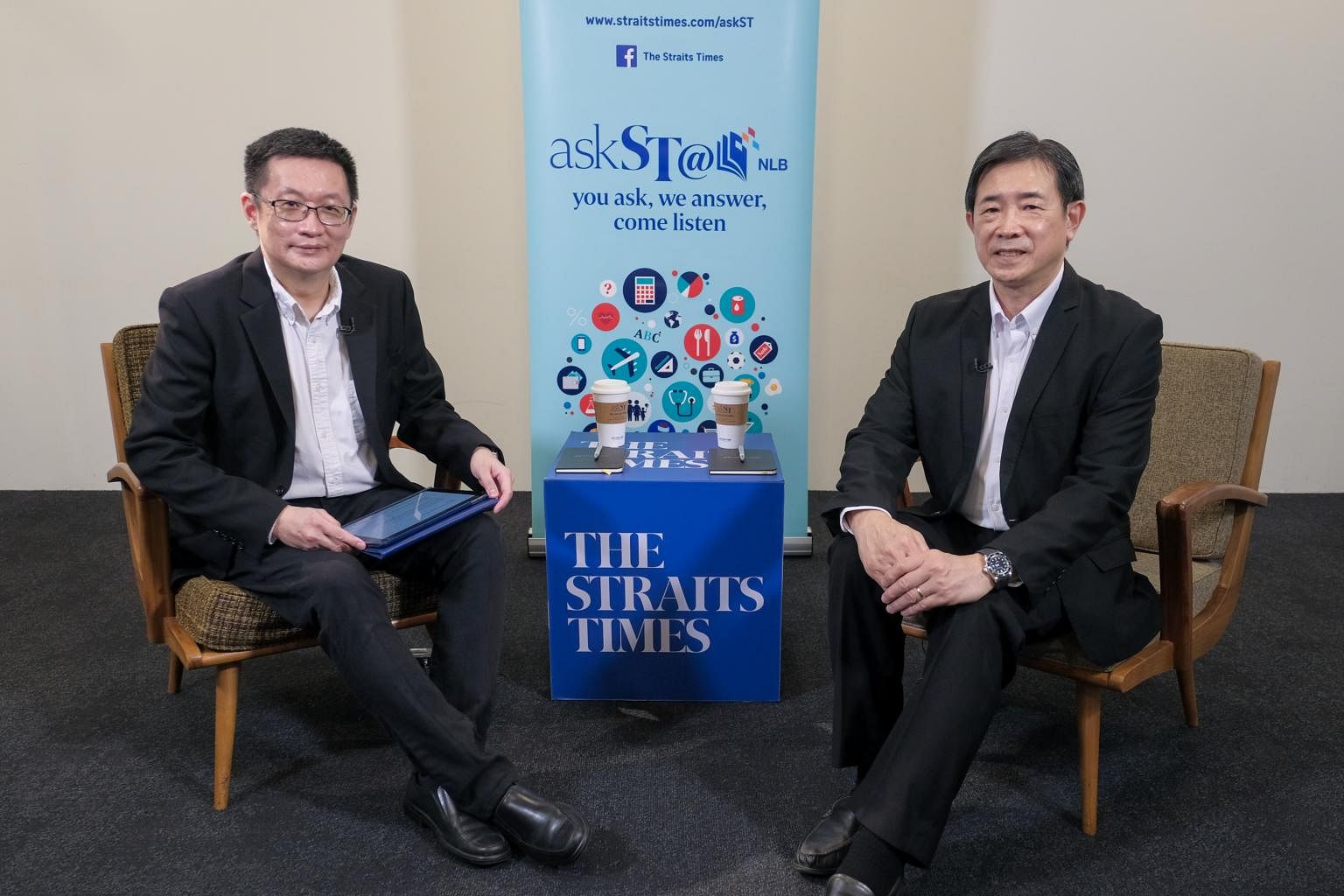askST@NLB: To avoid scams, be vigilant and verify online identities of others
Sign up now: Get ST's newsletters delivered to your inbox
Find out how to protect your retirement funds with Invest editor Tan Ooi Boon and Anthony Lim, Fellow at the Singapore University of Social Sciences. Watch the full discussion on The Straits Times' Facebook page.
SINGAPORE - The age-old adage of not talking to strangers applies when protecting yourself against scams, according to cyber security expert Anthony Lim.
Each person is his or her own best defence against scams, and those who deal with others online should verify the identities of the other parties.
"We need to do our due diligence," said Mr Lim, a fellow at the Singapore University of Social Sciences.
"Even if someone is from a rich or seemingly real organisation, you need to (verify it with) alternative sources."
Examples include finding out the person's career history or whether the organisation has a legitimate office address.
"Go on social media and find out (about the person)... before you come to a conclusion whether you want to deal with this person or not," said Mr Lim.
He also said that for transactions involving a large sum of money, it is only reasonable and fair that the deals are done in a physical meeting.
A scammer might give up if a potential victim insists on meeting face to face.
"Then you save your money... (and) yourself the trouble of getting into a scam," added Mr Lim.
Mr Lim said people are less vigilant when interacting with others online, and therefore are more easily swayed by scammers.
Another factor would be the need for an instant response.
"(Scammers) know that young people are impatient - they don't check," said Mr Lim.
"They see something, they click (on it), they respond, they want an instant response."

ST Invest editor Tan Ooi Boon (left) and Singapore University of Social Sciences fellow Anthony Lim.
ST PHOTO: GAVIN FOO
Mr Lim said human greed also plays a part, particularly in job and investment scams where scammers entice victims with promises of easy money.
He also weighed in on the recent measures imposed by the Monetary Authority of Singapore on banks here to tighten digital banking security, in the light of last year's spate of phishing scams targeting OCBC Bank customers.
These measures include removing clickable links in SMSes sent to retail customers and a cooling-off period before implementing requests to make key changes, such as contact details.
He was speaking to The Straits Times' Invest editor Tan Ooi Boon about avoiding scams at the askST @ NLB discussion titled Financial Security: Protect Your Nest Egg From Scammers.
askST @ NLB is a collaboration between ST and the National Library Board (NLB).
The virtual talk was shared on ST's Facebook page at 7pm on Friday (Feb 25).
Mr Lim said the measures, while helping to combat fraudulent transactions, would cause inconvenience to legitimate bank customers.
He also noted that with the measures in place, members of the public might become complacent and let their guard down.
Mr Lim added: "And meanwhile, as new measures are being brought in... you can imagine the scammers are already (trying to) find out, 'How do we get around this? How do we find new ways to scam people?' "
Other topics covered in the virtual session included dealing with schemes involving cryptocurrency as well as the risks of sharing personal information online.
Members of the public can find more information and resources on this topic at ProQuest Central - a database the NLB subscribes to - using the keywords "scam" and "cyber security".
A myLibrary ID is required to access the database.
Those who do not have a myLibrary ID can go to account.nlb.gov.sg and sign up for one using their Singpass or identity card number or Foreign Identification Number.
The video recording of the event and past sessions can be found here.
The next askST @ NLB session will be held on March 25.
Recommended reading
- Scammed: How To Save Your Money And Find Better Service In A World Of Schemes, Swindles, And Shady Deals, by Christopher Elliott
- Scam-proof Your Assets, by Sutton Garrett (electronic resource)
- Dot Con: The Art Of Scamming A Scammer, by James Veitch (electronic resource)
- Scam Me If You Can: Simple Strategies To Outsmart Today's Rip-off Artists, by Frank Abagnale (electronic resource)
- How Cybersecurity Really Works: A Hands-on Guide For Total Beginners, by Sam Grubb
Helplines
- Anti-Scam Hotline: 1800-722-6688 (9am - 5pm)
- National Care Hotline: 1800-202-6868 (8am - 12am)
Mental well-being
- Institute of Mental Health's Mental Health Helpline: 6389-2222 (24 hours)
- Samaritans of Singapore: 1800-221-4444 (24 hours) /1-767 (24 hours)
- Singapore Association for Mental Health: 1800-283-7019
- Silver Ribbon Singapore: 6386-1928
- Tinkle Friend: 1800-274-4788
- Community Health Assessment Team 6493-6500/1
Counselling
- TOUCHline (Counselling): 1800-377-2252
- TOUCH Care Line (for seniors, caregivers): 6804-6555
- Care Corner Counselling Centre: 1800-353-5800


